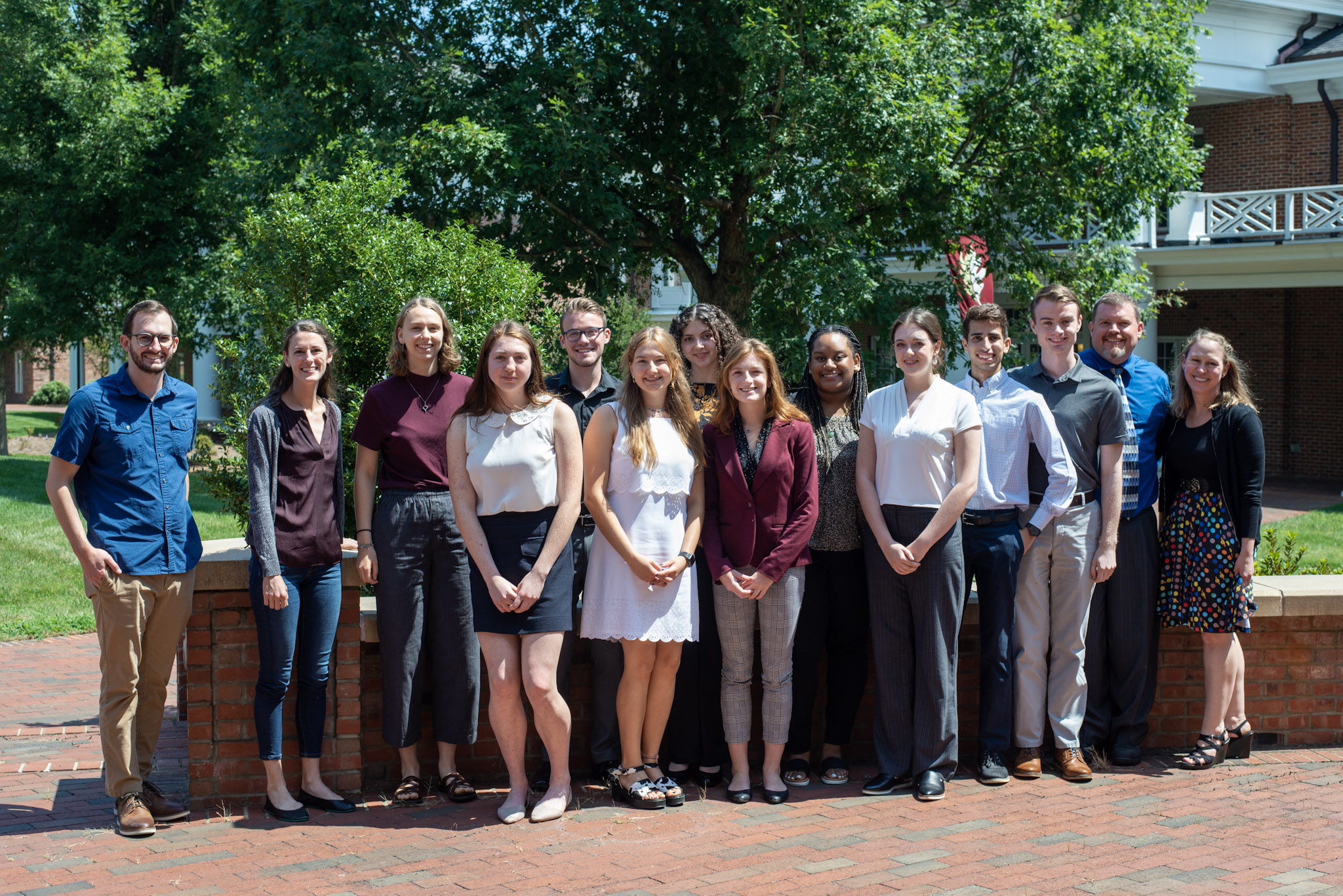Ten students worked with Elon and N.C. A&T State University faculty members this summer exploring topics in mathematical biology culminating in a day of presentations on Elon's campus.
Support from the National Science Foundation made it possible for Elon University and N.C. A&T State University to partner in providing undergraduate research experience focused on mathematical biology to students from around the country.
Mostly offered remotely, the 10-week program culminated with a visit to Elon’s campus by the cohort for a day of presentations by the five teams of student pairs who walked peers, mentors and family members through their findings. The program was co-directed by Elon Professor of Mathematics Karen Yokley and Associate Professor of Mathematics Nicholas Luke from N.C. A&T.

For Cole Parker from the University of North Georgia, the summer program offered him the opportunity to dive into the realm of applied mathematics and expand his experience as a researcher. “My university has a lot of theoretical mathematics research work, but doesn’t have as much in the applied field, which is mostly what I am interested in,” Parker said.
Paired with Sara Hunsberger from Haverford College and mentored by N.C. A&T Associate Professor Choongseok Park, Parker explored mathematical modeling of various “bursting activities,” which was focused on now neurons communicate.
That research experience — diving deep into a topic while working closely with a mentor, and then presenting results — is central to the program, said Yokley. “All of these students are getting research experiences in some sort of quantitative project, either mathematical or statistical,” she said.
This is the second summer offering for the research experience, which is supported by the National Science Foundation-funded Joint Summer Research Experiences for Undergraduates (REU) program. The program focused on providing opportunities for research in mathematical biology for students attending Historically Black Colleges and Universities (HBCUs) and schools with liberal arts and sciences traditions.

Yokley said she had hoped to be able to conduct the REU program in-person on Elon’s campus this summer, but because planning had to take place earlier in the year, the uncertainty of the pandemic shifted the bulk of the program online. Students in the program closed out their summer work with a visit to Elon’s campus that included the presentation of their work.
The program is designed to not just provide students with the time to pursue a research interest, but to help them develop the knowledge of the tools they will need to conduct their work and the skills they will rely on to present their findings. The students participated in software workshops, professional writing sessions and seminars on academic topics, such as mathematical proofs.
Included in the programming were opportunities to connect with alumni who are pursuing careers in mathematical biology. “The sessions with alumni had a dual intent — to show what these scholars have been able to do professionally with mathematics and statistics, and also to offer the students some insight into networking,” Yokley said. “We have tried to be very intentional about getting people from different areas and with different perspectives to share their experiences with the students.”
Emmeline Riendeau of Haverford College was paired with Eva Nolan of Hamilton College in exploring tree ring dating. Working with Elon Assistant Professor of Statistics Nicholas Bussberg, the team looked at using degrees of freedom to approximate dendrochronology (tree ring dating) smoothing splines.
Riendeau said last summer she worked with a pharmaceutical company, which helped advance her academically, but this summer’s experience offered more. “It was cool to see what they were working on at the pharmaceutical company, but that experience was not as student-focused,” she said. “It was really nice to go into an REU that was focused on students. It was teaching us not just about our research topic, but about research itself.”
This summer’s program was the second of three, and Yokley said she is looking foward to the possibility of bringing students and faculty mentors together in person for the entirety of their work together. First virtually and then in the several days spent in person to conclude the program, the students built bonds with each other and their mentors, she said.
“It’s really important to have these students connect with each other, and build upon their research experience,” Yokley said.



